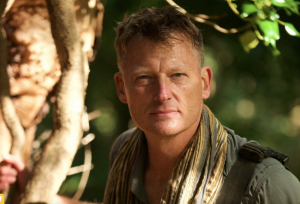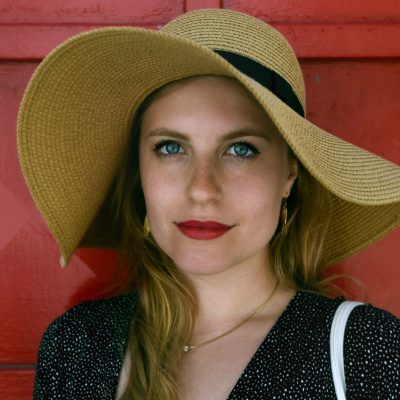
In his new book, Explorer, the British adventurer reflects on a career spent traversing unforgiving environments, discusses the story behind his 2017 ‘disappearance’ in Papua New Guinea and celebrates the lessons he’s learnt from Indigenous peoples
Read the articles at nationalgeographic.com
Where did your passion for exploring come from?
My dad was a test pilot; I think that was the beginning. I remember him flying extraordinary aircraft, including a Vulcan bomber, right over the back garden, which was very exciting. It’s a huge aircraft, used in those days to carry the UK’s nuclear deterrent. He was very gentle character, a rather unassuming man. But he gave me a belief that it was possible to push yourself to be some sort of pioneer. By the age of 10, I remember telling my dad that I wanted to be an explorer.
What were your first forays into adventuring?
Well, it turns out that you need money for expeditions! But I thought that if I could just get myself there, then maybe I could somehow pull off a journey. So, I worked in a warehouse to get a bit of money together and headed off to the Orinoco, finding my way to the mouth of the Amazon. And it was a very tricky, dangerous expedition. I was unskilled and inexperienced. But I had that wonderful belief you have at the age of 22: that you’re immortal and the world’s your oyster.
How did that first expedition shape your approach to future ones?
I contracted two sorts of malaria. I was attacked by gold miners. I’d lost everything when I fled in my canoe, and then just walked, day after day after day. And I survived. But it was all down to the locals, the Indigenous people of the Amazon, who showed me a huge amount of goodwill. I began to realise how they saw the forest — a home that gave them medicine, shelter, food. They understood the environment that almost killed me. It became my philosophy to turn to the local people.
And so that’s how my modus operandi came about. First, out of financial necessity, but later I felt this was a new way of exploring. We hadn’t often heard the point of view of the local people, who are the experts. Exploration has historically been about outsiders — white males like me going in and asserting their view on the place. We should be listening.
What expedition made the biggest impact on you?
The sacred initiation ceremony I went through with the Niowra community in Papua New Guinea, in 1985. It turned out to be six weeks of total hell. The other initiates (young men about my age) and I were hidden away, inside an arena — the ‘crocodile nest’ — and beaten every single day, five times a day. We were given permanent initiation marks: our chests and backs were with cut with bamboo blades. It was all about learning to work together, learning our strengths, learning our weaknesses. And this, of course, helps the local people go on to survive in the swamplands around the Sepik River. And, for me, I hoped it would set me up to be more resilient as an explorer.
Knowing myself, and gradually accumulating experience, has got me through a huge number of dangers in my life. But things can go wrong that are totally beyond your control. I was once chased by Pablo Escobar’s hitmen, rifle bullets going past my ear. Most of the troubles I’ve had in my career have been from outsiders: cartels, loggers, gold miners and other opportunists.
Is there a country or environment that has a special significance for you?
I became practised in the art of rainforest survival, in the Amazon, Guinea, Borneo and others. This was an environment where I could readily talk to Indigenous people and learn skills, rather than desert or steppe lands where people are more nomadic and not so bound to the environment. But it’s a wearing, highly competitive place; humans don’t often live very long alone in a rainforest. I moved on to hot deserts: Namibia, the Gobi, and I absolutely adore these places. To walk with utter freedom in a desert — and to have an alliance with a camel, which is the ultimate desert creature; so strong, so adapted — is a wonderful thing. And then there are cold deserts, of course, like the Arctic. It’s a harder environment, but it can be beautiful, too.
What is Explorer about and why did you write it?
I felt I had a cracking story to tell. When I returned to Papua New Guinea in 2017 it was because I felt so indebted to so many brilliant local people and I was intrigued to revisit a place I hadn’t seen for a generation. I went with Frank Gardner, the BBC security correspondent, who’s in a wheelchair after being shot by al-Qaida. He had this passion to see birds of paradise, so I helped him access the interior of the rainforest [while filming the BBC2 documentary series Birds of Paradise: The Ultimate Quest]. While out there, I heard that a community called the Yaifo was still up in the mountains, despite a huge Gold Rush taking place. I wondered if a man named Korsai was still alive. I wanted to shake his hand as he’d guided us over the central range of Papua New Guinea 30 years prior. He’d possessed no blankets, no boots, nothing to help him through incredibly cold, almost impassable terrain.
I did find Korsai, and it was wonderful to do an expedition that had no motive other than friendship. He kept saying, “Benedict, Benedict.” I kept saying, “Korsai, Korsai.” And we hugged and hugged each other.
But I also wanted to write about what happened at the end because, unfortunately, it became a big international story. I climbed over that mountain again, which no one had done in those 30 years since we’d done it, but there was fighting. I couldn’t get out, then I caught malaria and dengue fever. Eventually, a helicopter came and collected me.
What does it mean to be an explorer in the 21st century?
One point of view on that incident, from newspapers all around the world, was that I was a blundering outsider, and that no one has a right to call themselves an explorer in this day and age. The man’s a fool, they said, he doesn’t even take a phone or a GPS. Other groups championed me: oh, he’s like David Livingstone, a throwback to a glorious age, a plucky Brit. I became co-opted by the Brexit movement, which didn’t reflect my particular views. People piled on their own agendas.So, I wanted to write Explorer to answer that question: what is an explorer in the 21st century? Is there anywhere left to explore? And the answer is yes. Explorers are needed now more than ever, as far as I’m concerned. We’re brainwashed to think that the great, golden era of exploration lives in the past, that it belongs to Speke, Burton, Drake and all those people. But exploration is part of the human spirit; we want to understand the world, to define it. Never has it been more important for people to bear witness to the world we’re affecting so much.
What kit do you deem essential?
A standard explorer’s rainforest survival kit, which I’d have around my waist, would include fishing hooks and line, blades to create spears, water purification tablets, waterproof paper to write messages — those sorts of things. And for a desert environment, distress flares. But, increasingly, I’d also say a photo from home. It’s important to make connections with the people you’re with and to explain your background. And if things are going wrong, it helps to look at your loved ones and know what you’re fighting for. My last Guinea expedition, when I was sinking in and out of fever, I got out all my photos. It shocked me into action. I thought: you can’t die here, you have to get out.
What’s the best advice you’ve ever been given?
A poster that hung over my desk used to read: ‘Control your destiny or someone else will.’ It’s so easy to be swayed by someone else’s priorities and agendas. Cling on to your truths, those visions of your future that you have.
What’s next?
I’m going on a secret expedition this year. I may announce some information before I go, or I may not. As becomes apparent in the book, my last trip to Papua New Guinea got out of my control. When the newspapers reported on my disappearance, the purpose of the trip — to find and thank Korsai — got completely lost. And, as I’ve said, my motto is about controlling your destiny. So I’m heading off again, and I won’t take a phone or a GPS because I still trust in the local people who’ve kept me alive through thick and thin, all around the world.
Benedict Allen’s new book, Explorer: The Quest for Adventure and the Great Unknown (Canongate), is available in hardback, ebook and audiobook from 3 March 2022
Published in the May 2022 issue of National Geographic Traveller (UK)

